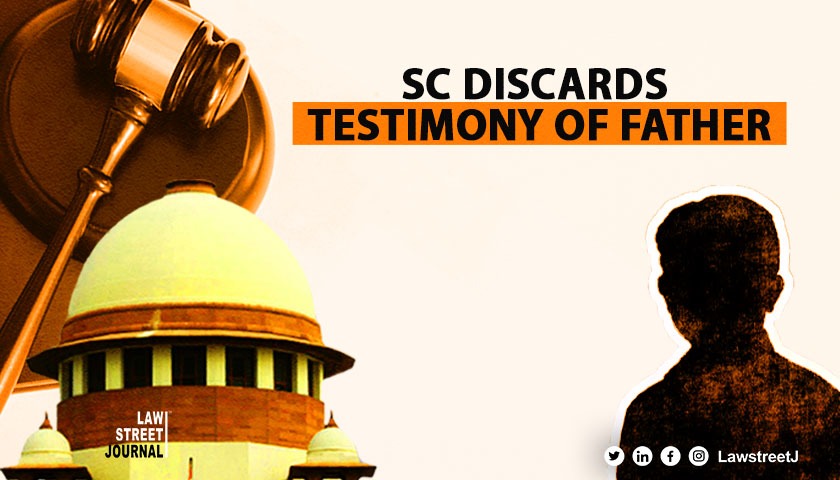NEW DELHI: The Supreme Court has upheld a High Court order, which set aside the conviction and sentence of life term to six accused in a murder case, finding that the complainant was the most interested witness being the father of the deceased and he remained mute spectator during the alleged assault.
A bench of Justices Abhay S Oka and Pankaj Mithal said complainant, Chhote Lal happened to be the sole eyewitness but he had neither seen anyone killing his son Kishan Sarup nor he had deposed that he had seen anyone burning the victim, Kishan Sarup.
It may not be out of context to mention that the appellant/complainant, a sole eyewitness, happens to be the most interested witness being the father of the deceased and having long enmity with the group to which the accused persons belong, therefore, his testimony was to be examined with great caution and the High Court ( Punjab and Haryana) was justified in doing so and in doubting it so as to uphold the conviction on his solitary evidence, the bench said.
In its December 14 judgment, the bench noted that the complainant is not actually an eyewitness either to the killing or to the burning of his son, though he may be an eyewitness to the incident which took place on November 4, 2000, at 7 pm.
The complainant claimed a car had chased their motorcycle, pushed them towards the roadside making them fall in the bushes, later the occupants of the car assaulted the deceased and then took him away in an injured position in the car.
It may be noted that he has not deposed anything as to why he had not tried to intervene and save his son from assault or stop the accused persons from taking him away in the car. He himself had not received any injuries, the bench said.
The court did not believe his statement that he could not do so on account of the threats extended by the accused persons, saying it appeared to be a bald statement as no one in a situation where his son is being assaulted and carried away would remain a mere spectator.
The appellant/complainant stated in the FIR that the accused assaulted his son with a knife and iron rod. He didnt mention about the use of a pistol by the accused. However, the police have recovered the empty cartridge. Cause of death as per postmortem is also firing from close range, the bench said.
The court said that there is no dispute to the fact that there was serious enmity between the two rival groups which were in fact interrelated.
The dispute between the two groups was quite old, commencing in the year 1986 in connection with the access to the public road which was being blocked by one party. The said dispute was compromised but still continued to persist which resulted in the murder of Ram Kishan. In retaliation, it appears that the rival group killed Kishan Sarup.
Of the ten accused, six were convicted for the offences under Sections 148, 201/149 and 302/149 of the IPC and separate punishment for each of the offences was prescribed, the maximum being imprisonment for life. The HC, however, set aside the conviction and sentence on November 20, 2008.
















